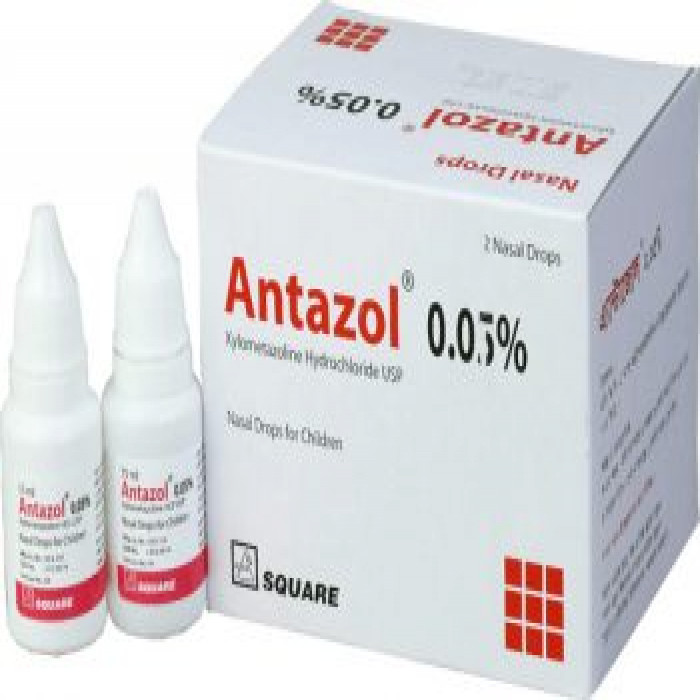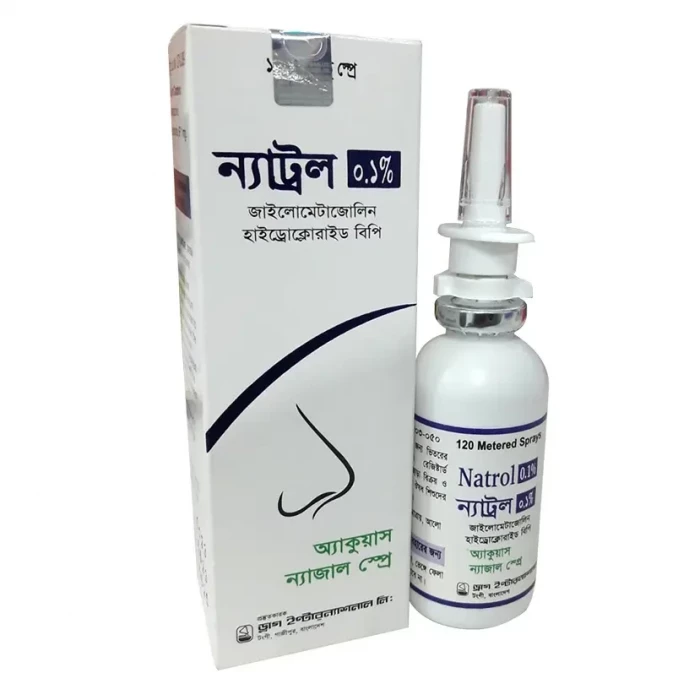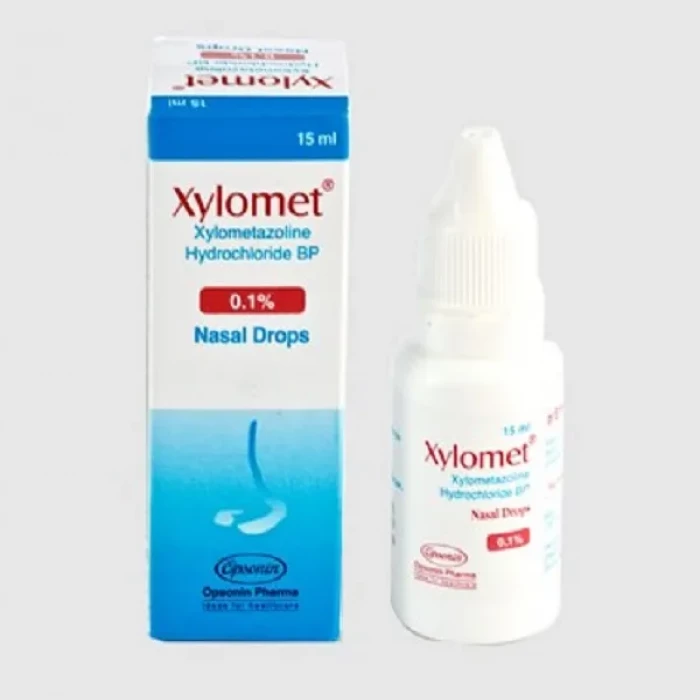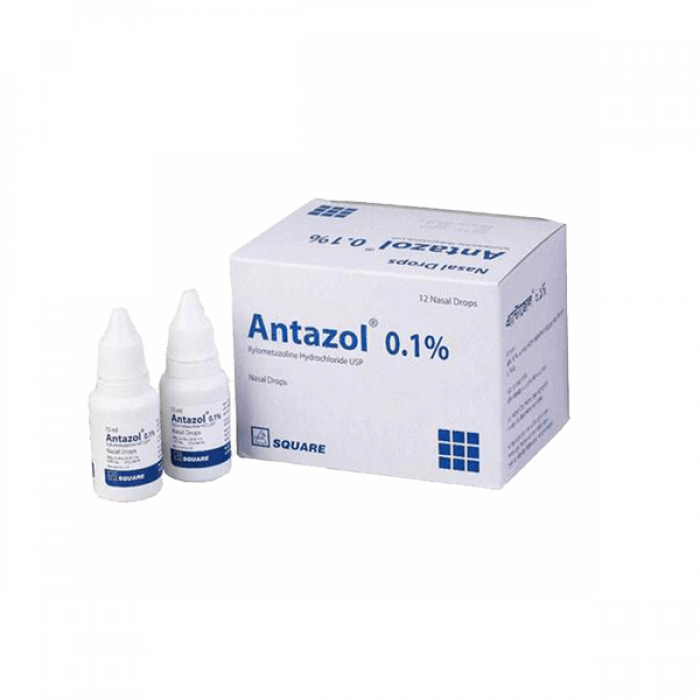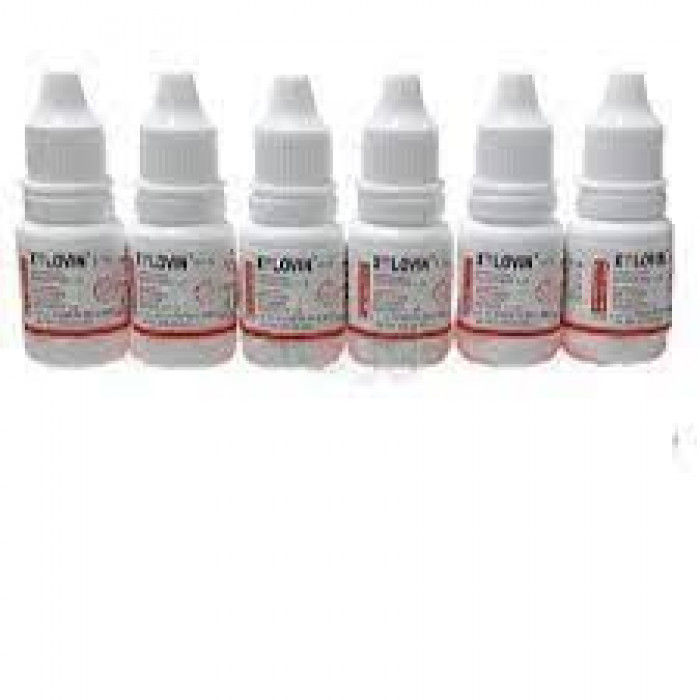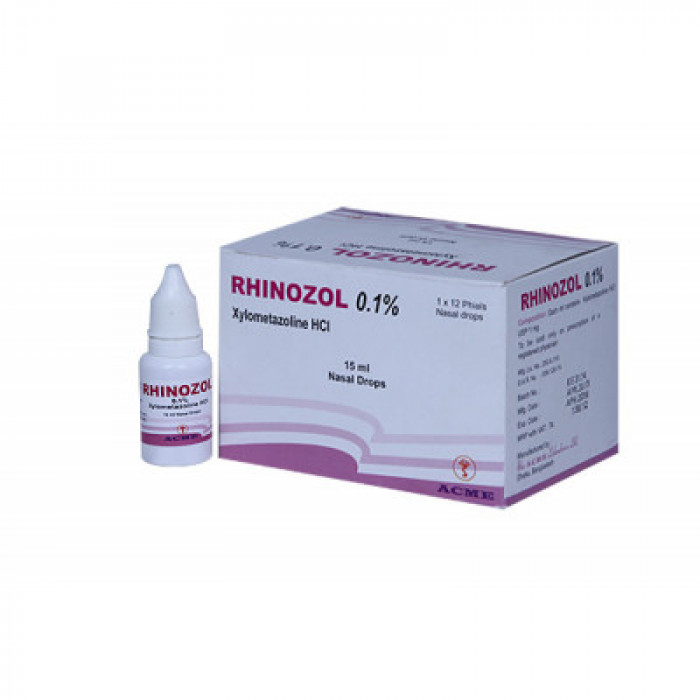
✔ 100% Authentic Product
👁️ Currently Viewing 4636
Rhinozol 0.1% Nasal Drops
Rhinozol 0.11% Nasal Drops are used to temporarily relieve nasal congestion brought on by a variety of illnesses, such as the common cold, sinusitis, hay fever, and allergies. Rhinozol 0.1% Nasal Drops reduce edema and congestion by constricting the blood vessels around the nose.
Discount
Price: ৳ 19
MRP:
৳
20
6%
Off

100% Genuine Products, Guaranteed

Safe & Secure Payments, Always

Fast, Secure & Efficient Delivery

Proper Packaging
 Cash on Delivery - All over Bangladesh
Cash on Delivery - All over Bangladesh Regular Delivery - 12-24 Hours, Dhaka City* Charge Tk.39-59
Regular Delivery - 12-24 Hours, Dhaka City* Charge Tk.39-59 Regular Delivery - 24-48 Hours, Other Cities* Charge Tk.99-110
Regular Delivery - 24-48 Hours, Other Cities* Charge Tk.99-110
 ফ্রি ডেলিভারিঃ - ৯৯৯ টাকা+ অর্ডারে, ঢাকা
শহরে
ফ্রি ডেলিভারিঃ - ৯৯৯ টাকা+ অর্ডারে, ঢাকা
শহরে ফ্রি ডেলিভারিঃ - ২৯৯৯ টাকা+ অর্ডারে, ঢাকার
বাহিরে
ফ্রি ডেলিভারিঃ - ২৯৯৯ টাকা+ অর্ডারে, ঢাকার
বাহিরে
100% Genuine Products, Guaranteed
Safe & Secure Payments, Always
Fast, Secure & Efficient Delivery
Proper Packaging
 Cash on Delivery - All over Bangladesh
Cash on Delivery - All over Bangladesh Regular Delivery - 12-24 Hours, Dhaka City* Charge Tk.39-59
Regular Delivery - 12-24 Hours, Dhaka City* Charge Tk.39-59 Regular Delivery - 24-48 Hours, Other Cities* Charge Tk.99-110
Regular Delivery - 24-48 Hours, Other Cities* Charge Tk.99-110 ফ্রি ডেলিভারিঃ - ৯৯৯ টাকা+ অর্ডারে, ঢাকা
শহরে
ফ্রি ডেলিভারিঃ - ৯৯৯ টাকা+ অর্ডারে, ঢাকা
শহরে ফ্রি ডেলিভারিঃ - ২৯৯৯ টাকা+ অর্ডারে, ঢাকার
বাহিরে
ফ্রি ডেলিভারিঃ - ২৯৯৯ টাকা+ অর্ডারে, ঢাকার
বাহিরে
✅ Description:
The drug Xylometazoline Hydrochloride Nasal Drops has been used to provide brief relief from congestion caused by common colds, sinusitis, hay fever, and allergies. Essentially, these medications reduce edema by narrowing the arteries and so inhibiting blood flow.
Safety Advices

Alcohol
No interaction found

Pregnancy
SAFE IF PRESCRIBED
Consult your doctor if using Rhinozol 0.1% Nasal Drops.

Breastfeeding
SAFE IF PRESCRIBED
Consult your doctor before using Rhinozol 0.1% Nasal Drops.

Driving
SAFE
No interaction found

Liver
CAUTION
Consult your doctor before using Rhinozol 0.1% Nasal Drops.

Kidney
SAFE IF PRESCRIBED
Consult your doctor.
✔️ Uses Of Rhinozol 0.1% Nasal Drops
- Common cold
- Upper Respiratory Tract Allergies
- Hay FeverNasal congestion
- Snoring
✔️ Side Effects of Rhinozol 0.1% Nasal Drops
The following adverse effects have been reported on occasion:
- In the nose and throat, there is a burning sensation.
- Irritation on the spot
- Temporary burning
- StingingTrouble sleeping
- Weakness
- Sweating
- Allergies
- Dryness in the nose
- Runny Nose
- Sneezing may occur
✔️ Quick Suggestions:
- If you have an allergy to Rhinozol 0.1% Nasal Drops, you shouldn't use it.
- Rhinozol 0.1% Nasal Drops should only be taken during pregnancy if absolutely necessary. Describe the advantages and disadvantages of your doctor.
- Before taking Rhinozol 0.1% Nasal Drops, speak to your doctor or pharmacist if you have any of the following health issues: Heart and blood vessel disease, diabetes, hyperthyroidism, high blood pressure, and urination issues (due to enlarged prostate).
- Without consulting a doctor, never provide Rhinozol 0.1% Nasal Drops to a youngster.
✔️ How to use Rhinozol 0.1% Nasal Drops
- Follow all directions on the product package, or use as directed by your doctor. If you have any questions, ask your doctor.
- Use Rhinozol 0.1% Nasal Drops in the nose as directed.
- Gently blow your nose before using Rhinozol 0.1% Nasal Drops.
- Use your finger to close the nostril on the side not receiving the Rhinozol 0.1% Nasal Drops While keeping your head upright, place the spray tip into the open nostril.
- Spray Rhinozol 0.1% Nasal Drops into the open nostril as you breathe in through your nose.
- Sniff hard a few times to be sure the medication reaches deep into the nose.
- Repeat these steps for the other nostril if needed.
- Avoid spraying the medication into your eyes or onto the middle of the inside of your nose (nasal septum).
- Rinse the spray tip with hot water or wipe with a clean tissue after each use.
- Make sure that water does not get inside the container.
- Replace the cap after each use.
✔️ What happens if I miss a dose of Rhinozol 1% Nasal Drops?
Use the missed dose as soon as you remember. Skip the missed dose if it is almost time for your next scheduled dose. Do not use extra medicine to make up for the missed dose.
✔️ What happens if I overdose Rhinozol 1% Nasal Drops ?
An overdose of Rhinozol 1% Nasal Drops is not expected to be dangerous.
✔️ Indications of Rhinozol 0.1% Nasal Drops
- Xylometazoline is used to treat nasal congestion, rhinitis, sinusitis, and headaches.
- Nasal congestion is linked to tubal block and serous otitis media.
✔️ Pharmacology
It is believed that oxymetazoline mediates this effect by causing vasoconstriction of the nasal mucosa, which contains the venous sinuses; nasal decongestion allows breathing through the nose, providing relief from sore throat caused by mouth breathing, which dries and irritates the throat; and nasal decongestion allows breathing through the nose. In one study, subjects with nasal congestion reported relief of earache and sore throat in addition to nasal decongestion. The venous sinusoids that line the nasal mucosa become congested due to a number of etiologies, including rhinosinusitis and allergic or non-allergic rhinitis. The nasal mucosa's blood vessels contract as a result of the activation of -adrenergic receptors, restoring nasal airflow. The most abundantly expressed 1A- and 2B-adrenoceptors in human nasal mucosa may have the most crucial role in nasal mucosa vasoconstriction. Xylometazoline is a more selective agonist at 2B-adrenoceptors and has affinity for 1A-, 2A-, 2C-, 1B-, and 1D-adrenoceptors. During inhaling and exhaling, xylometazoline lowers nasal resistance and increases nasal airflow volume. Another imidazoline nasal decongestant, oxymetazoline, had a comparable duration of action to xylometazoline but displayed a somewhat quicker beginning of the effect.
✔️ Dosage & Administration of Rhinozol 0.1% Nasal Drops
Infants less than 3 months:
- Not to be used in infants less than 3 months.
Children:
- Xylometazoline 0.1% should not be used for children under the age of 12 years.
Adults:
Xylometazoline 0.1%:
- 2 or 3 drops in each nostril two to three times daily.
✔️ Interaction
- Increased heart rate or BP with sibutramine.
- Potentially Fatal: Hypertensive crisis with MAOIs.
✔️ Contraindications
Patients who have had transsphenoidal hypophysectomy or surgery that exposes the dura mater should not use xylometazoline nasal drops. It's also not recommended for people who are allergic to Xylometazoline. To avoid cross-infection, each Xylometazoline nasal drop should only be used by one person. Patients should not take decongestants for more than seven days in a row.
✔️ Pregnancy & Lactation
Pregnancy:
- Rhinozol 0.1% Nasal Drops are not recommended for usage during pregnancy.
Lactation:
- If Rhinozol 0.1% Nasal Drops enter breast milk or whether it might affect a breastfeeding infant is unknown. If you are breastfeeding a child, avoid using this medication without seeing a doctor.
✔️ Precautions & Warnings Rhinozol 0.1% Nasal Drops
- Rhinozol 0.1% Nasal Drops for adults (0.1%) should not be given to children under the age of 12. In situations of persistent rhinitis, drops shouldn't be used for an extended time.
- Long-term usage of the drops can result in bounce-back obstruction and medication-induced rhinitis.
- Only transient relief is provided by this drug. Use just as indicated; do not use more often, with more sprays, or for a longer period.
- Also, avoid using Rhinozol 0.1% Nasal Drops for longer than 3 days as doing so may result in rebound congestion.
- Long-lasting redness, swelling, and increasing runny nose are signs of rebound congestion.
- Stop using this medicine if this happens, and speak with your doctor or pharmacist.
- Tell your doctor if your condition gets worse or lasts after 3 days.
✔️ Storage Conditions
- Protect from heat and light. Keep Rhinozol 0.1% Nasal Drops away from children and pets.
- Do not use the bottle for more than 28 days after opening it for hygiene concerns.
- Do not flush medications down the toilet or pour them into a drain unless instructed to do so.
- Properly discard this product when it is expired or no longer needed.
⚠️Disclaimer:
At ePharma, we’re committed to providing accurate and accessible health information. However, all content is intended for informational purposes only and should not replace medical advice from a qualified physician. Please consult your healthcare provider for personalized guidance. We aim to support, not substitute, the doctor-patient relationship.




